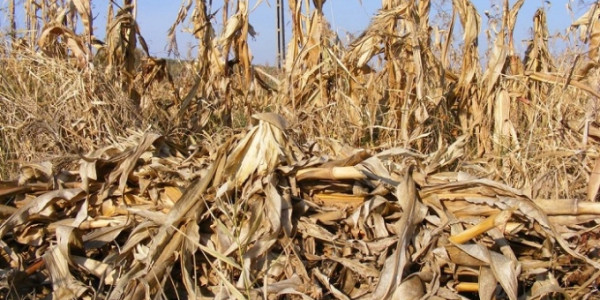Mark Hoffman First Posted: May 13, 2013 04:18 PM EDT Huge amounts of fossil fuel could be replaced by biofuels if it was possible to extract them from the very plentiful waste product lignocellulose. Importantly, its use in biofuel production does not interfere with the animal or human food chain. Researchers are currently trying to find the best enzymes to make bioethanol production as efficient as possible and elucidating the mechanisms behind the key process of enzymatic hydrolysis. Lignocellulose is the main component of currently poorly used waste materials from agriculture, forestry and wood-based industries, including straw, corn leaves and stalks as well as paper mill waste. Composed of carbohydrate polymers tightly bound to the tough material lignin, enzymatic breakdown and microbial fermentation of the carbohydrates can be used for production of bioethanol, the researchers explained. (Photo : Flickr) On the downside, however, lignocellulose is what makes woody material so indestructible and so difficult to decompose. The EU-funded project DISCO aimed to develop and test more efficient and cost-effective enzymes for breakdown of carbohydrates in lignocellulose for production of bioethanol over the past years. To achieve this goal, DISCO researchers reported that they isolated naturally occurring enzymes from fungi and bacteria in soil samples, culture collections and metagenomic libraries. Altogether, almost 700 lignocellulytic strains were screened, yielding tens of interesting fungi for cellulose and hemicellulase activity. Genome mining from the fungus Myceliphthora thermophila resulted in nearly 20 novel cellulases and hemicellulases and multiple bacterial carbohydrate active enzymes were discovered from soil metagenomic libraries. Knowledge on the mode of enzyme action is crucial to the success of lignocellulose breakdown. Lignocellulose is composed of cellulose fibrils linked together with hemicelluloses, all embedded in lignin. The researchers said that they thus specifically looked for synergy, efficiency and ability to degrade the entire backbone of the hemicellulose molecule. Besides hemicellulose, the inhibiting effect of lignin on cellulases/hemicellulases was also analyzed. Project scientists also investigated the effects of different pre-treatments on chemistry and enzymatic digestibility of agricultural residues. On hydrothermally pre-treated wheat straw, temperature and residence time had a marked effect on enzyme digestibility. Discovery of new recyclable enzymes promises to supply biofuel to supplement other less sustainable forms of energy. Further details and research papers can be found on the DISCO website ( http://www.disco-project.eu ). Taylor Scott International
Biofuel From Wood: Researchers Look For Best Enzymes

This entry was posted in Investment, investments, News, Property, Taylor Scott International, TSI, Uk and tagged alternative, articles, calendar, chat, enzymes, flickr, fossil, hoffman, investment, investments, javascript, property. Bookmark the permalink.







